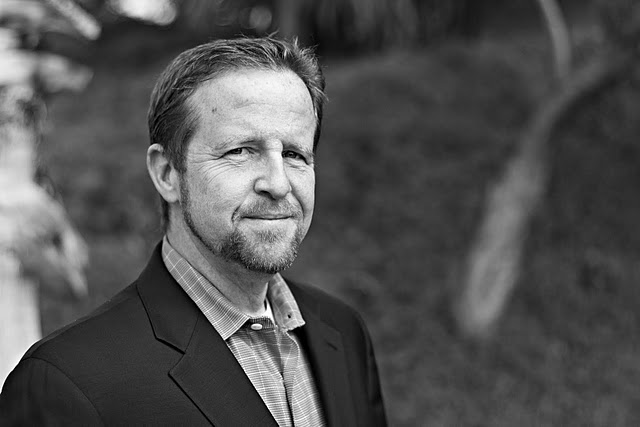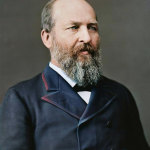In my last post, I charted the acceptance and gradual ostracizing of Pentecostals and charismatics within neoevangelical spaces. Neoevangelicalism, as the baby of confessional Presbyterians, Lutherans, and, later, Baptists, wanted to claim exclusive rights to Christian orthodoxy by emphasizing biblical inerrancy while simultaneously downplaying denominational distinctives. While Pentecostals were invited into the evangelical project in the 1940s, over the course of a half-century neoevangelical leaders grew wary of charismatics after the explosion of second-wave charismaticism, which spread primarily in mainline denominations and within the Roman Catholic Church. Second-wave charismaticism opened a door to new criticisms on the part of neoevangelicals. Especially because it connected Roman Catholicism with mainline churches deemed “liberal” by neoevangelicals, the polemical soil was tilled to plant seeds of distrust by drawing straight lines between modern charismatics and the villains of the Reformation. The growth of charismaticism was interpreted as evidence of what one pastor called “spiritual insecurities and illiteracy” that sniffed of late medieval Catholicism at the dawn of Luther’s 95 Theses. The “insurgence of false revivalism” portended nothing less than a new Dark Ages.
As I wrote, “By the mid-90s, neocharismatic revivalism and the pentecostalization of Arminian evangelicalism were a foregone conclusion. Evangelical boundary lines were firmly set, or so it seemed. In the mid-90s, [Presbyterians like] Michael Horton critiqued neocharismatics from the comfortable perch of Presbyterian evangelicalism. But less than a decade later, he and his Westminster colleagues would face the uneasy task of challenging new charismatics who also claimed the mantle of Reformed theology.”
The Reformed Charismatic (?)
Beginning in the early 2000s, the rise of Neo-Calvinism, more popularly known as the “Young, Restless, and Reformed” movement, swept across the evangelical landscape, blurring traditional evangelical markers, creating new networks, and empowering a new intellectual elite. As Brad Vermurlen notes, many if not most of the Neo-Calvinist leadership was cautiously open to charismatic gifts. Influential leaders like John Piper, Wayne Grudem, and Matt Chandler took Reformed emphases on scriptural sufficiency to argue for the ongoing importance of spiritual gifts. Piper wrote as early as 1991 that, according to 1 Corinthians 14, “signs and wonders are part of the blessing we should pray for today. There is no text in the New Testament that teaches the cessation of these gifts. But more important than this silence is the text that explicitly teaches their continuance until Jesus comes.” A new Neo-Calvinist church-planting network, called Acts 29, helped open the door to a generation of church leaders who loved the doctrines of grace and the continuation of miraculous gifts. A trans-regional and cross-denominational organization, Acts 29 welcomed a broad range of churches and pastors who confessed Calvinist doctrines and gender complementarianism, many of whom also promoted charismatic gifting. Oklahoma City pastor Sam Storms, a Reformed Baptist, was important for giving charismatic Calvinism its theological justification. For Storms, an openness to charismatic gifts was an important aspect for what it meant to be biblical and, in some important ways, evangelical.

The Presbyterians at Westminster Theological Seminary were not impressed. In an edited volume called Renewing Evangelical Mission, Michael Horton lambasted basically the entire evangelical program since the Second Great Awakening. “Revivalism,” he argued, was synonymous with radicalism, more specifically, “Thomas Müntzerism.” Because evangelical emphasis on revival downplayed or outright ignored the sacraments and traditional denominational strictures, it smacked of sixteenth-century enthusiasm. In 2017, at his own online magazine, Modern Reformation, Horton wrote a piece entitled, “Protestantism is Over and the Radicals Won.” Horton asserted Christianity worldwide is informed more by the inward word of God than by the sacraments and scripture. He accused evangelicals of being Reformation “enthusiasts,” new Müntzers shaped by the appeal to the inner word, revivalism and Pentecostalism, more than by Luther and Calvin. “So what exactly are we celebrating in this year of the Reformation’s five hundredth anniversary? Are we rejoicing in the reformation of the church’s doctrine and worship, away from human-centered religion to a faith centered on the Triune God and the gospel of his saving grace in Christ alone, received through faith alone, communicated through the word and the sacraments alone? Or are we celebrating the Radical enthusiasm that our culture mistakes as the Reformation: the autonomous self, individualism, free will, and inner experience and reason?”
Westminster church historian R. Scott Clark took then-Acts 29 president Matt Chandler to task for Chandler’s claim that the evangelical church needed to emphasize both Reformed theology and charismatic gifting. At his popular website, Heidelblog, Clark’s headline blazed, “Did Calvin’s Theology, Piety, and Practice Need To Be Rounded Out With Müntzer’s?” Chandler lamented that traditional boundary markers made anyone who is “Reformed and charismatic” an “orphan.” But Clark saw the boundary markers as divinely-instituted unscalable walls. Chandler wasn’t merely a theological orphan; he was a contradiction in terms. Clark settled the issue clearly: “There is no such thing as a ‘Reformed charismatic.’” His post ended, “We wish our Pentecostal/Charismatic friends God’s blessing but we also wish that they would not try to re-create Frankenstein’s monster by appending Reformed theology to Müntzer’s theology, piety, and practice. We rejected the first time and we still reject it in our confessions. The law, the gospel, prayer (in known languages), and the due use of ordinary means is not a defective piety. It is the ancient piety and practice of the Christians. It is not obvious to this Reformed minister why we should regard the piety and practice of Geneva, Heidelberg, and Edinburgh deficient and in need of a supplement from Zwickau or Münster.”
 Independent Baptist John MacArthur got in on the criticism as well. In 2013, he published Strange Fire: The Danger of Offending the Holy Spirit with Counterfeit Worship. The purpose of his book was to delegitimize any sort of charismatic emphases in evangelical churches, and it was especially pointed at his continuationist Calvinist cobelligerents. “The results of that charismatic takeover have been devastating,” MacArthur wrote. “In recent history, no other movement has done more to damage the cause of the gospel, to distort the truth, and to smother the articulation of sound doctrine.” (Quite a claim.) He continued, “Charismatic theology has turned the evangelical church into a cesspool of error and a breeding ground for false teachers.” MacArthur conveniently lumped in all charismatics together, pairing traditional Pentecostal denominations like the Assemblies of God and newer evangelical charismatics like John Wimber with the prosperity gospel preachers of independent charismatic churches. Like Horton and Clark, MacArthur linked modern charismaticism to the detested heretics of the Reformation. “The fanatical fringe of the Reformation, in particular, shared a number of characteristics with modern charismatics: including various ecstatic experiences and an insistence that they were receiving new revelation from the Holy Spirit.”
Independent Baptist John MacArthur got in on the criticism as well. In 2013, he published Strange Fire: The Danger of Offending the Holy Spirit with Counterfeit Worship. The purpose of his book was to delegitimize any sort of charismatic emphases in evangelical churches, and it was especially pointed at his continuationist Calvinist cobelligerents. “The results of that charismatic takeover have been devastating,” MacArthur wrote. “In recent history, no other movement has done more to damage the cause of the gospel, to distort the truth, and to smother the articulation of sound doctrine.” (Quite a claim.) He continued, “Charismatic theology has turned the evangelical church into a cesspool of error and a breeding ground for false teachers.” MacArthur conveniently lumped in all charismatics together, pairing traditional Pentecostal denominations like the Assemblies of God and newer evangelical charismatics like John Wimber with the prosperity gospel preachers of independent charismatic churches. Like Horton and Clark, MacArthur linked modern charismaticism to the detested heretics of the Reformation. “The fanatical fringe of the Reformation, in particular, shared a number of characteristics with modern charismatics: including various ecstatic experiences and an insistence that they were receiving new revelation from the Holy Spirit.”

MacArthur’s efforts did not go unnoticed by Reformed charismatics. In October of 2013, Mars Hill pastor and Acts 29 cofounder Mark Driscoll showed up in California where MacArthur was staging a Strange Fire conference to coincide with his book. Driscoll showed up with his own literature, his recent book A Call to Resurgence, and began handing out copies at MacArthur’s mega-church, Grace Community Church, where Strange Fire Conference was being held. For Driscoll, MacArthur was not touting Reformation principles but fundamentalist ignorance. At his now-defunct blog, The Resurgence, Driscoll wrote that “In more fundamental tribes, the Holy Spirit has two primary ministries: to write the Bible and convict us of sin. Basically, you are a nail, the Bible is a hammer, and the Holy Spirit’s job is to pound you.”
The equation of charismaticism with historical heresy is ongoing among non-charismatic Reformed evangelicals. Erwin Lutzer’s 2015 book Who Are You to Judge? included a section titled “Recycled Heresies.” In it, he linked modern prophecy to—who else?—Thomas Müntzer (who he misnamed Thomas Munster). At the same time, Reformed charismatics like Sam Storms and British pastor Andrew Wilson continue to argue for their legitimacy in Reformed evangelical spaces, most notably at The Gospel Coalition.
Conclusion
What makes an evangelical? Is it adherence to a set of ideas about God and the Bible, a way of reading the Bible, a self-conscious reception of Reformation ideas? Or is it the experience of regeneration and renewal, an embodied and self-conscious sense that one’s life has been and is being transformed by the mystery of divine power? These questions provide some of the subtext for the long and muddled history of Reformed evangelical reception of charismatic influences. It is clear to me that over time, in response to changes on the ground, Reformed evangelicals began to shift their views on the question of charismaticism in evangelicalism. Some, like Carl F.H. Henry, began with tentative fellowship, but gradually moved away. Others, like Michael Horton and D.H. Hart, began to eschew the evangelical label altogether because of its inescapable ties to experiential religion and revivalism. Others still, like Sam Storms and Matt Chandler, worked to expand the borders of Reformed evangelicalism to include the practice of charismatic gifts, arguing that one could be a Calvinist without denying the ecstatic spiritual experiences that Calvin and others denounced from fear of “Anabaptist” excess.
Many Reformed evangelicals have interpreted changes in evangelical belief and practice, or new ideas introduced into the marketplace, as a “crisis of evangelical identity.” In all these cases, the self-appointed custodians of historic orthodoxy have felt compelled to step in. In critiquing various charismatic movements, many evangelical leaders read historic heresies or fanatical movements of the past into the Spirit-led evangelical factions of the present. By linking various charismatic movements and experiential theologies with older heresies and sects, cessationist Reformed evangelicals gave their audiences a historical frame of reference to interpret and thereby marginalize competing interpretations of the Bible, spiritual life, and the evangelical experience. Such characterizations flattened Christian history for polemical purposes. Time became a flat circle, giving the impression that there was nothing new under the sun, that the same errors were destined to be repeated time and again. It was the true Christian’s job to avoid these pitfalls by remaining true to the sola fide and sola scriptura principles that shaped their imaginations toward an evangelical historic orthodoxy.













